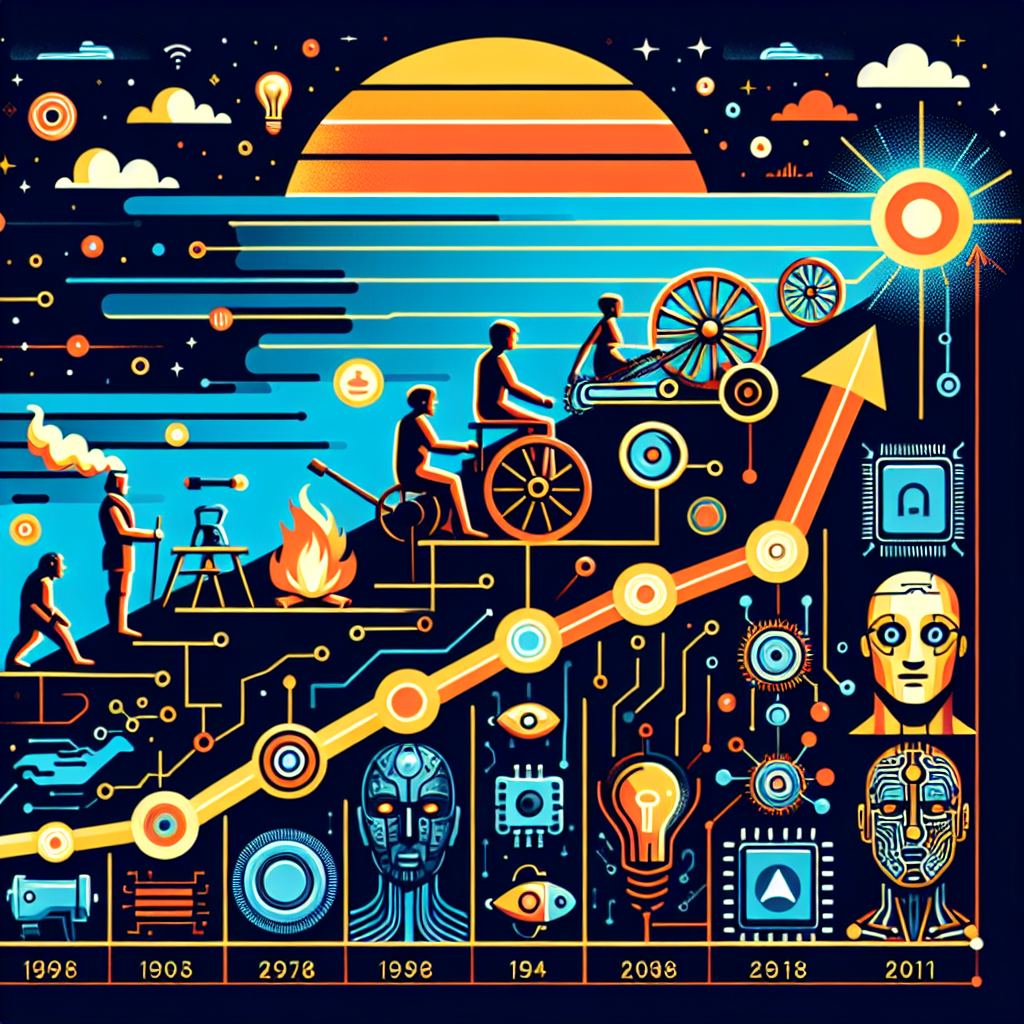The Rise of Artificial General Intelligence: What it Means for Society
Artificial General Intelligence (AGI) is a term used to describe the development of machines that can perform any intellectual task that a human can do. This concept has been the subject of much speculation and debate in recent years, as advances in machine learning and artificial intelligence have brought us closer to creating machines that are capable of true intelligence.
The idea of AGI has been around for decades, but recent advancements in technology have made it a more realistic possibility. In particular, the development of deep learning algorithms and neural networks has allowed machines to learn from vast amounts of data and make decisions based on that information. This has led to breakthroughs in areas such as image and speech recognition, natural language processing, and autonomous driving.
As we move closer to creating machines that possess general intelligence, it raises important questions about what this will mean for society. Will AGI bring about a new era of prosperity and innovation, or will it lead to widespread job loss and social upheaval? In this article, we will explore the potential impact of AGI on society and discuss some of the key questions and concerns that arise from its development.
What is Artificial General Intelligence?
Artificial General Intelligence refers to machines that possess the ability to perform any intellectual task that a human can do. This includes tasks such as understanding language, making decisions, solving problems, and learning from experience. AGI is often contrasted with narrow AI, which refers to machines that are designed to perform specific tasks, such as playing chess or recognizing faces.
The development of AGI has long been a goal of artificial intelligence researchers, but it has proven to be a difficult challenge. While machines have made significant advances in specific areas of intelligence, such as playing chess or Go, they still fall short of the broad range of abilities that humans possess. Achieving AGI will require machines to not only perform tasks well, but also to understand the context in which those tasks are performed and to adapt to new situations and challenges.
The Potential Impact of AGI on Society
The development of AGI has the potential to bring about significant changes in society, both positive and negative. On the positive side, AGI could lead to breakthroughs in fields such as healthcare, education, and transportation. Machines with general intelligence could help doctors diagnose and treat diseases more accurately, help teachers personalize instruction for students, and help cities optimize traffic flow and reduce congestion.
AGI could also lead to new forms of creative expression and innovation. Machines with general intelligence could help artists and designers create new works of art and architecture, help scientists discover new drugs and materials, and help entrepreneurs develop new products and services. The possibilities are endless, and AGI could unlock new opportunities for human creativity and ingenuity.
However, the development of AGI also raises concerns about its impact on society. One of the most pressing concerns is the potential for widespread job loss. As machines become more capable of performing a wide range of tasks, there is a risk that many jobs could be automated, leading to mass unemployment and economic disruption. This could have far-reaching consequences for society, including increased inequality, social unrest, and political instability.
Another concern is the potential for AGI to be misused or abused. Machines with general intelligence could be used for malicious purposes, such as cyber attacks, surveillance, or propaganda. There is also the risk that AGI could be programmed with biases or unethical values, leading to discriminatory decisions or harmful actions. These risks raise important ethical questions about how AGI should be developed and regulated to ensure that it benefits society as a whole.
FAQs about Artificial General Intelligence
Q: When will we achieve Artificial General Intelligence?
A: It is difficult to predict exactly when AGI will be achieved, as it depends on a variety of factors, including technological progress, funding, and research priorities. Some experts believe that AGI could be achieved within the next few decades, while others believe that it is still many years away.
Q: Will AGI be conscious or have emotions?
A: It is unlikely that AGI will possess consciousness or emotions in the same way that humans do. While machines may be able to simulate or mimic these qualities, they are fundamentally different from human consciousness and emotions.
Q: What are the ethical implications of AGI?
A: The development of AGI raises important ethical questions about how machines should be programmed and regulated. These questions include issues such as privacy, accountability, bias, and fairness. It will be important for policymakers, researchers, and industry leaders to address these ethical considerations as AGI continues to develop.
Q: How can we ensure that AGI benefits society?
A: To ensure that AGI benefits society, it will be important to involve a diverse range of stakeholders in its development, including policymakers, researchers, industry leaders, and the public. It will also be important to establish clear guidelines and regulations for the development and use of AGI to ensure that it is used ethically and responsibly.
In conclusion, the rise of Artificial General Intelligence has the potential to bring about significant changes in society, both positive and negative. While AGI could lead to breakthroughs in fields such as healthcare, education, and transportation, it also raises concerns about job loss, misuse, and ethical implications. As we continue to advance in the development of AGI, it will be important for policymakers, researchers, and industry leaders to address these concerns and ensure that AGI benefits society as a whole.

